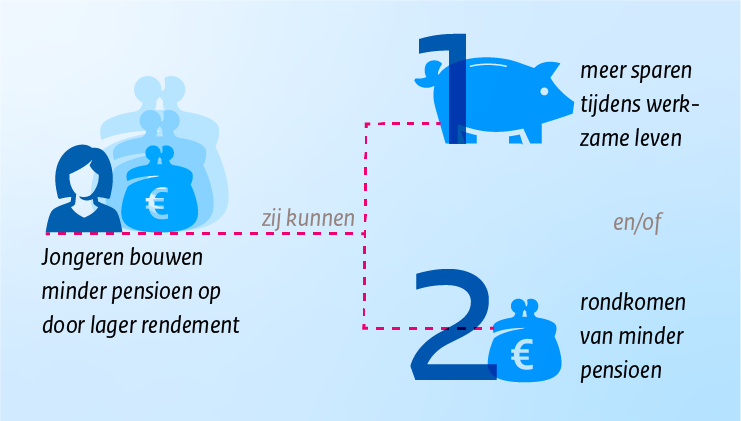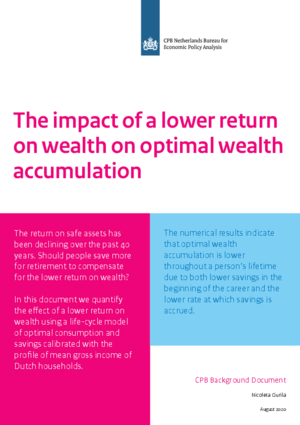Lage rente en de toekomst van pensioenen

Lees ook het Netspar-achtergronddocument 'Lage rente en de balans tussen omslagfinanciering en kapitaaldekking van pensioenen'.
Co-auteurs: Casper van Ewijk en Lex Meijdam (Netspar).
In this background document we describe how a lower return on wealth affects people's consumption and savings choices through channels that act in opposing directions; hence, the overall impact is not clear and necessitates a model based quantitative assessment. We perform such an assessment in a life-cycle model of optimal consumption and savings calibrated with the profile of mean gross income of Dutch households. For people's preferences (time preference, elasticity of intertemporal substitution) we consider values from the literature and check the robustness of the results to different calibrations.
Downloads
The numerical results obtained with the life-cycle model indicate that, for a person that just enters the labor market, a permanently lower return on wealth has asymmetric effects over the life-cycle. In the beginning of the career optimal savings is lower: with lower interest rates people can borrow more using the same level of labor income as collateral (human wealth effect). Hence consumption is higher. As people approach retirement, savings decisions are driven more by the fact that pension income will be smaller due to the lower return on wealth (income effect). People prevent a too high decline in consumption after retirement by saving more as they approach the retirement age. Hence, consumption is lower in the second part of a person’s career.
Overall, the total optimal wealth accumulation is lower throughout a person's life due to both lower savings in the beginning of a person's career and the lower rate at which savings is accrued. A one percentage point lower return on wealth implies a 7% lower optimal wealth accumulation in the baseline calibration of the model.
The results are qualitatively robust to different calibrations of the parameters describing people’s preferences.
Authors

Authors





